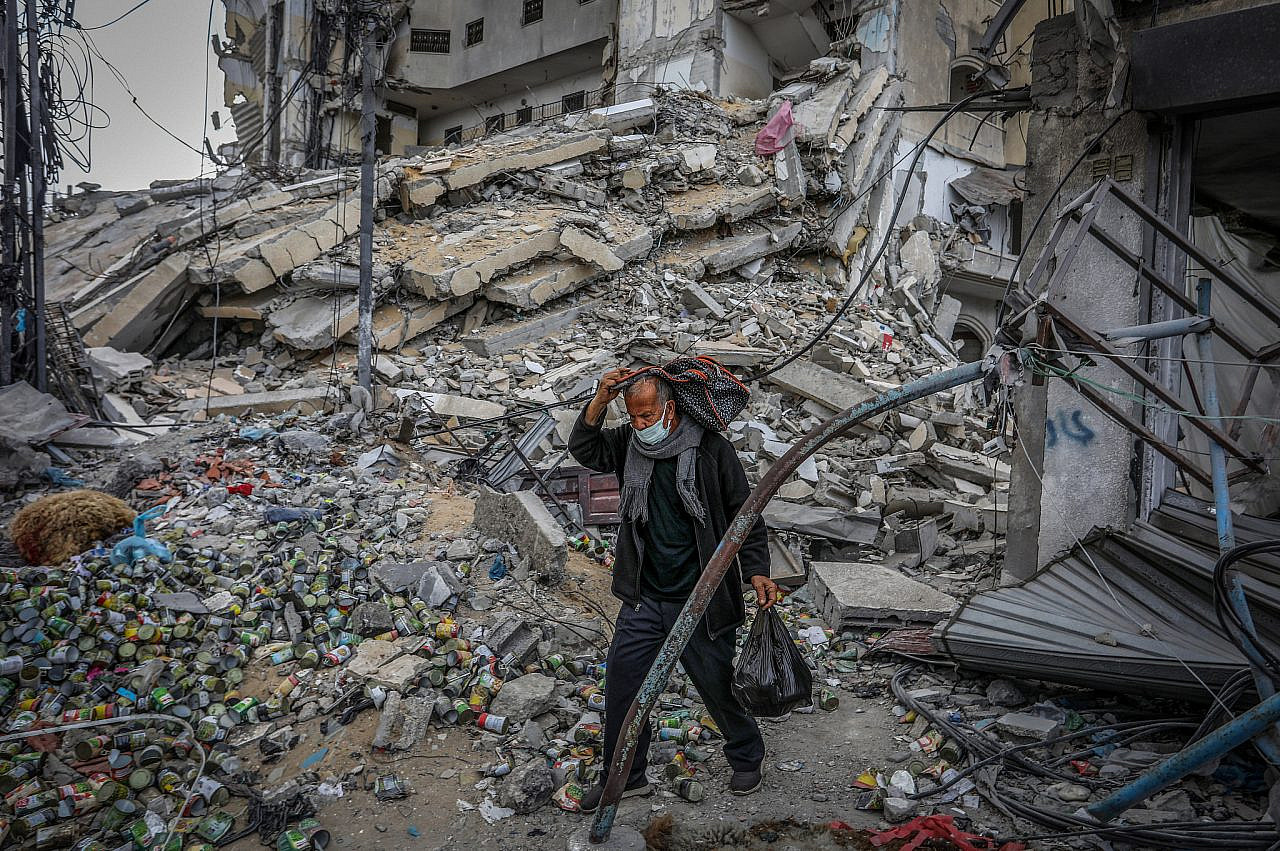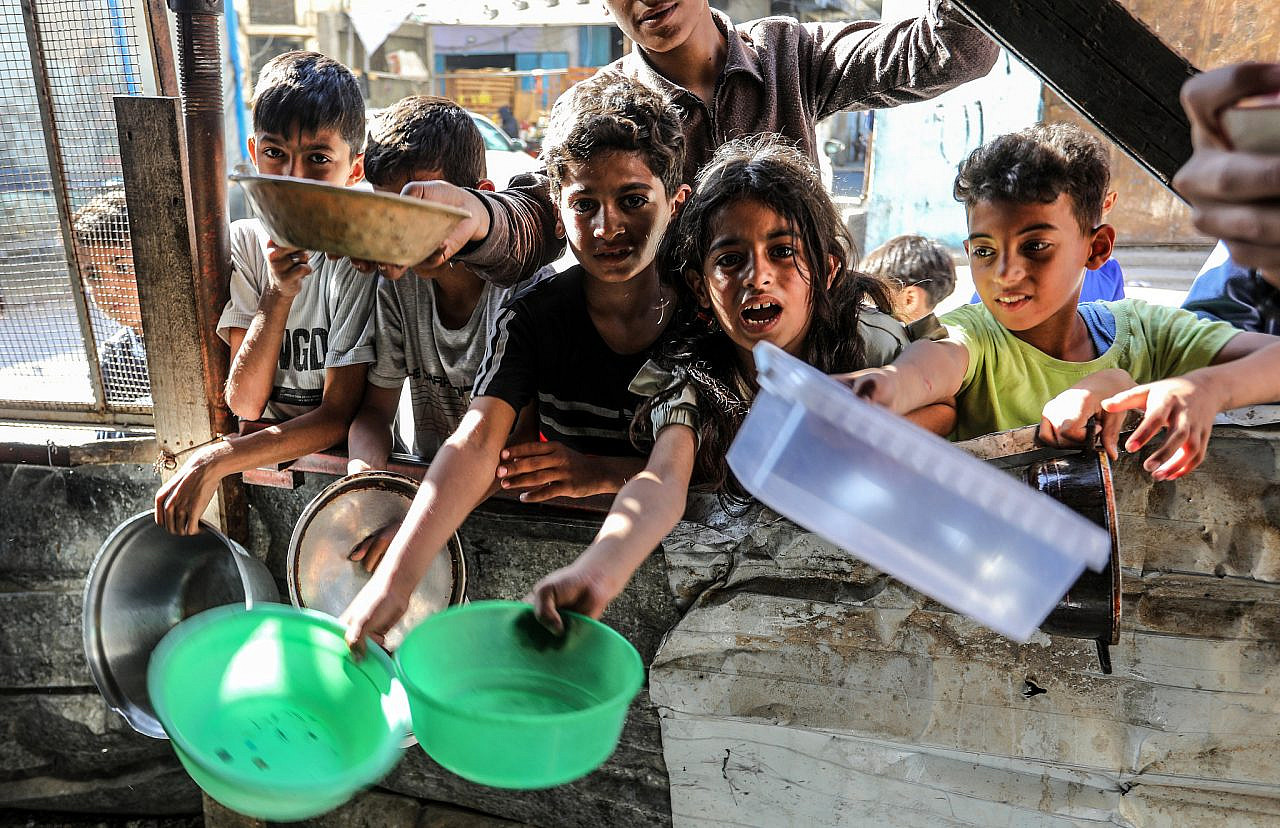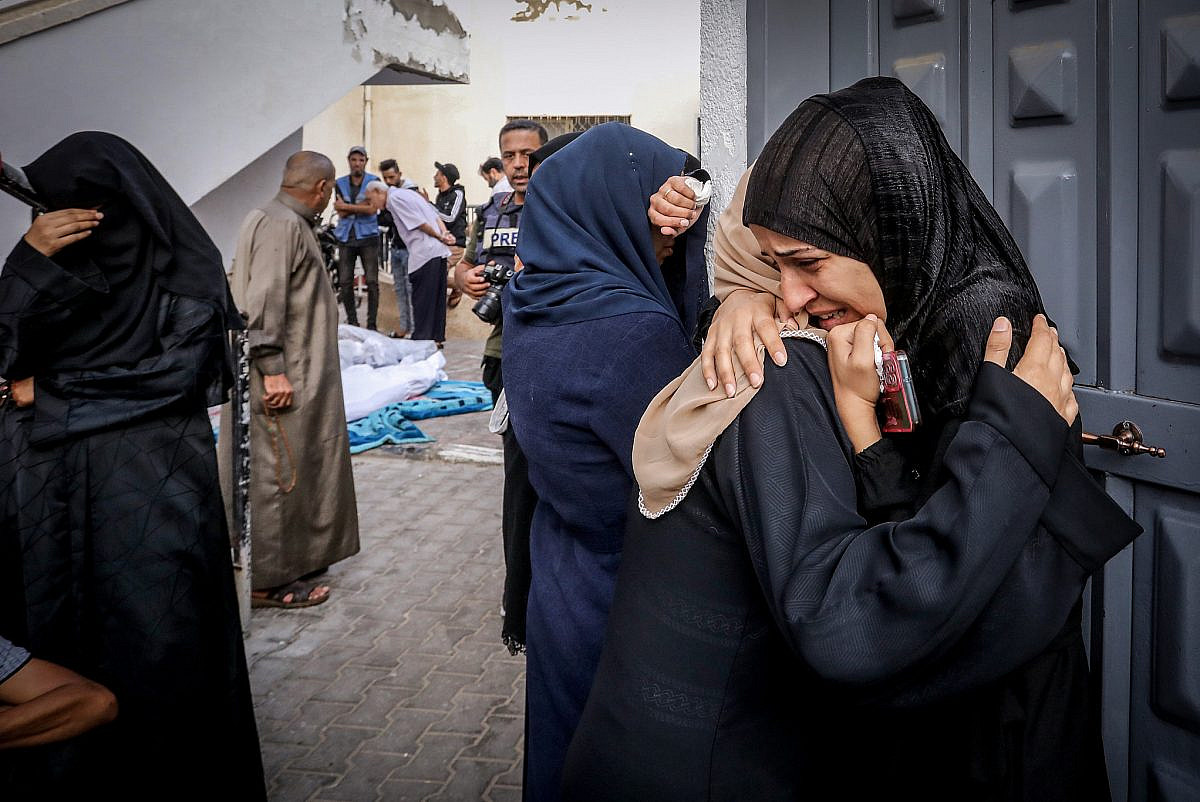For the past six months, I have been moving from one address to the next across the Gaza Strip with my husband and two children, aged 7 and 9, in an elusive search for safety. Our home in the Tal el-Hawa neighborhood, southwest of Gaza City, was bombed soon after the war began, and since then we have been homeless.
At first, we moved between residences in the north. But sooner or later, every neighborhood in Gaza City became a target, and every apartment in which we sought refuge was damaged by Israel airstrikes.
Eventually, my husband and I decided to flee south with our children, to the city of Khan Younis. It was a journey filled with adversity. Again, we moved from one address to another, until we ended up at Al-Amal Hospital.
Sheltering at the hospital grounds in the middle of winter, we slept only on a blanket, with a second blanket on top of us to provide warmth for my children and I. It was the first time I had felt extreme cold; the severity, along with the fear I felt for my children, brought me to tears.
After the occupation army besieged Khan Younis, we fled in early February through the so-called “safe corridor” under their control. On that journey, we experienced abuse, insults, humiliation, and the theft of our belongings. We continued back northward to the city of Deir al-Balah in central Gaza, prolonging the bitterness of displacement until this day.
It has been six months, three cities, and countless places of refuge — and with the war showing no signs of ending, we know that we may not be able to shelter in our current spot for much longer.

A daily struggle for survival
Recently, my daughter fell ill and lost half her body weight. The doctor told us she was suffering from severe fatigue and a bacterial infection, and that she needed to eat sweet foods.
I went to the market and looked everywhere for sweets, but the only ones I found were extremely expensive. I thought about making her a cake or a sweet porridge, but a kilo of sugar nowadays costs $30, plus I only had a spoonful of milk and there was no more at the market.
In the end, I bought a small cake for $4 for my two children to share, as well as a lemon for $2 to eat with a can of tuna that we had received in an aid parcel along with canned beans, chickpeas, and peas.
“When can you buy us chicken again?” my daughter asked while we ate this modest meal. I smiled and promised to try at the earliest opportunity, as soon as it becomes available in the market.
This is our situation in Gaza after six months of war. We rarely find vegetables, fruit, or meat in the markets — it’s only canned foods, which contain a high percentage of harmful preservatives. If on a rare occasion you do find fresh food, the prices are too high for most families to afford it.

Aside from food, we lack gas and electricity, relying instead on firewood to prepare our meals and to heat up canned food. Safe drinking water is scarce, and so too is the infrastructure for sanitation.
On top of my increased responsibilities to my children and husband, I have tried to continue my work as a journalist. But doing so has never been so dangerous. The number of journalists that have been martyred in the past six months is so high that friends have shut their doors on my family because they didn’t want a journalist staying with them, believing us to be a target.
Most read on +972
Getting stable internet connection has been a daily struggle due to the weak communication networks, while many people in Gaza have been reluctant to be interviewed or to offer any statement that will be made public for fear of being targeted by the Israeli army. Even keeping our phones charged has been difficult, and sometimes impossible.
And as if that weren’t enough, I’ve also had to deal with the martyrdom of my brother, who was killed in an Israeli airstrike on March 14, and the month-long detention of my father by Israeli forces. These events have deeply affected my heart, changed my personality, and severely impacted my mental state. I have become inclined toward silence, and struggle with the inability to carry out my journalistic tasks. No matter what we write, our pens feel powerless in the face of the magnitude of death, destruction, and fear that we’re living through.




